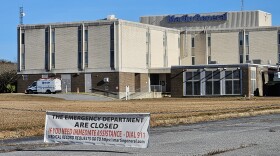An Asheboro baby became what's thought to be the first-of-a-kind organ transplant patient.
The Duke Health surgeon who performed the operation says this new kind of procedure has the potential to revolutionize organ transplants, offering patients perhaps decades longer lives with fewer complications.
Easton Sinnamon, now a 1-year-old, received a heart transplant at Duke Health in August. Typically, a patient's immune system will reject an organ transplant, because it recognizes that new organ as foreign. To stop this, patients must take immune-suppressant drugs, which are highly toxic and can damage the patient's body, especially the kidneys.
But pediatric cardiac surgeon Dr. Joseph Turek is one of a group of surgeons pioneering a new way to transplant organs. One that includes a donor's processed thymus tissue as well. This allows the recipient's immune system to learn that the new organ is also part of the body, and does not attack it.
"This transplant that he had, could really change the face of how we do all transplants in the future," Turek said at a media briefing Monday.
The standard of care for transplant patients has been to give them immune-suppressing drugs, so the body does not attack the new organ. But these are toxic and can cause other problems. For this reason, transplanted hearts typically have a lifespan of 10 to 15 years, according to Duke.
"Hopefully this means that (Easton's) heart transplant could last 30, 40, 50 years," said Turek. "That would be my hope for him."
Baby Easton and his parents, Brandon and Kaitlyn Sinnamon, participated in the Monday media briefing. They made daily trips to Duke hospital in Durham, about a one-hour drive, to check in on him. Having him home meant the world to them and their 4-year old daughter.
"Something that we never thought was going to happen, just being honest," Easton's father Brandon Sinnamon said. "The way that he was in the hospital, it was an amazing feeling bringing him home."







